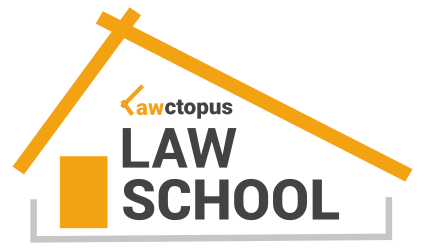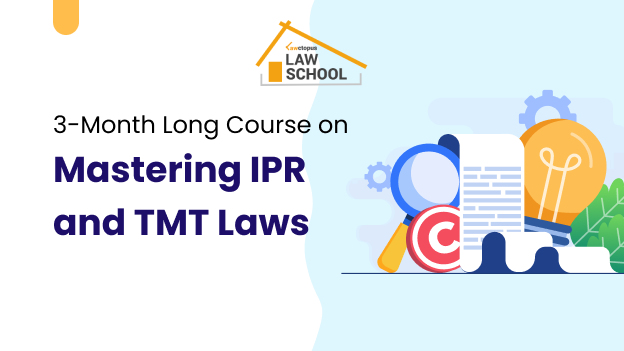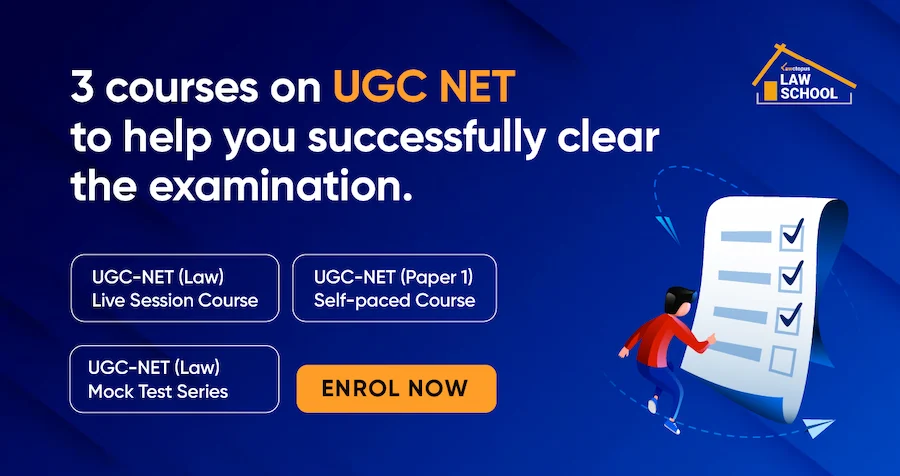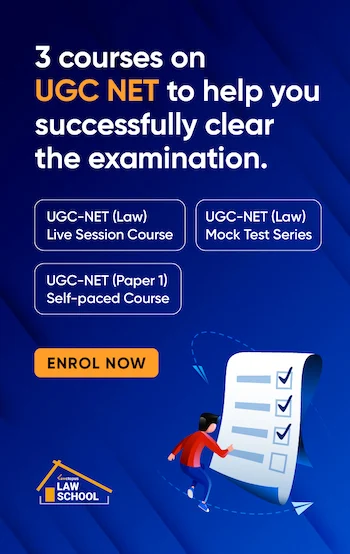About Lawctopus Law School
Since March 2020, Lawctopus Law School has taught a wide range of skills to over 17,000+ law students, young lawyers, professionals, academicians, and business people in the last 3 years.
Over 1000 students have given our courses an average rating of 92.6/100. Not only are they well-rated (we are open to independent review), our courses come with a ‘warm’ learning experience!
Why TMT & IPR Comprehensive Course?
Growing influence of Technology
The Technology Law landscape has witnessed tremendous growth over the years, with the advent of new-age technologies and social media. These new systems have changed how we communicate!
While innovation in this sector has introduced several new products and services, it has also given rise to new challenges across different media, be it television, print, mobile devices, or the Internet.
Importance of Protection and Enforcement of IPR
Technology laws govern the movement of communications across these different platforms. With the rapidly developing technology and inventions and the increasing number of businesses, every year, protection and enforcement of intellectual property have become of utmost importance.
The legal community is and will play a big role in safeguarding the rights of the creators, businesses, and inventors.
Here’s what you’ll gain:
- Insights about technology laws: Update yourself with current technological advances, whether they be data privacy or content regulation.
- Knowledge about protecting intellectual property: Learn how to safeguard copyrights, patents, and trademarks, it is necessary in a society where innovation and ideas rule.
- Clarity on media laws and regulations: Every platform, TV, mobile apps, websites, and social media, has unique legal issues.
- IP and Tech agreements: Practical sessions guiding you on drafting of IP and Tech agreements
- Develop skill set: This course makes you stand out in a crowded field.
In just three months, you’ll walk away with practical skills and the confidence to navigate the intersection of law and technology.
Course Structure and Outline
The Course Consists of 6 subjects taught in a rigorous, practical manner by lawyers and practitioners:
- TMT Laws: Fintech Law, and DPDP Act
- TMT Laws: Cryptocurrency, Telecom, Media Laws
- IP & Technology Agreements
- Patent Law & Practice
- Copyright Law & Practice
- Trademark Law & Practice
| Month | Subject 1 | Subject 2 |
| June | TMT Laws: Cryptocurrency, Telecom, Media | Patent Law & Practice |
| July | TMT Laws: Fintech, DPDP | Trademark Law & Practice |
| August | IP & Technology Agreements | Copyright Law & Practice |
Course Components/ 7 Unique Elements of the Course
- Internship Project Certificate by Baskaran & Associates (on successful completion of the project)
- 6 Practical Assignments, 1 each on Trademarks, Copyrights, Patents, 2 on TMT and one on drafting of an IP agreement.
- Personal feedback on each assignment
- Rigorously researched reading resources, recorded lectures, and LIVE sessions’ recordings:-
- 26 Live Lectures, 322 pages of rigorously researched reading resources
- 49 hours of recorded lectures and recordings of live sessions
- Dedicated course mentor for each batch
- Online discussion portal to address your doubts
- Life-time access of the course
Course Fee
Rs. 19,999 [Launching Price]
Structure of this Course
TMT: Laws and Practice (Telecom, Media, Technology Laws)
Module 1: Introduction to Technology Law
This module covers what Technology laws are, the role of Technology lawyers, and the various practice areas in this field. It also covers practical aspects, such as research methodologies for Technology law practitioners, sources of research, as well as essential know-how for budding lawyers in this field.
Module 2: Fintech
This module introduces the concept of fintech, as well as delving into the regulatory framework for digital products and services. It also discusses prepaid payment instruments, payment gateways and aggregators, payment banks, UPIs, digital and P2P lending, and other such regulatory components.
Module 3: Fintech (Cryptocurrencies)
This module briefly discusses the concept of cryptocurrencies, their legality, as well as Indian case laws on this issue.
Module 4: Privacy and Data Protection
This module traces the evolution of the Right to Privacy in India by analysing various case laws, legislations, and general jurisprudence. It also covers the recently introduced Digital Personal Data Protection Act, 2023. It also discusses the position adopted by various foreign jurisdictions, specifically in the EU and the USA. The module also covers a discussion on the EU GDPR.
Module 5: E-Commerce, Intermediary Liability, and Content Moderation
This module discusses the liability of intermediaries, as well as take-down mechanisms. It delves into the Information Technology Act 2000, the Information Technology (Intermediary Guidelines and Digital Media Ethics Code) Rules, 2021, and blocking rules under the same. This module also touches upon e-commerce and over-the-top or ‘OTT’ services.
Module 6: Telecom Regulations
This module discusses the regulation of telecommunications in India by exploring key laws as well as government ministries. It also deliberates upon the licensing regime, interesting case laws, the network neutrality debate in India, as well as the Other Service Provider regime.
Module 7: Media and Entertainment Laws
This module discusses regulations governing print media, cable television, and radio, media transactions. It also probes into broadcast, advertising, and new media regulations.
Module 8: Emerging Technologies
This module touches upon fascinating, upcoming, disruptive technologies, such as 5G, artificial intelligence and machine learning, blockchain, drones, Internet of Things, Augmented, Virtual, and Mixed Reality, and many other emerging technologies. It discusses the applicable regulations and the need for upcoming laws in this regard.
Patent: Laws and Practice
Module 9: Understanding Patents, International & Indian Patent Regime
To help learners understand the scope of Patent Law, this module explores what patents are, comparative differences between Patents and other Intellectual Property, namely, Trademark, Copyright and Design and comparative analysis of Patent Law regimes of US, EU and China with that of Indian Patent Law regime.
Module 10: Subject Matter Eligibility
The Indian Patent Act does not specifically mention what comes under the ambit of subject matter, but it does mention certain categories of inventions that cannot be patented. This module explores subject matters that can be protected under the Indian Patent Law Act.
Module 11: Procedure for obtaining, Revocation and Opposition
This module discusses the end-to-end procedure of obtaining a patent, starting with the drafting of various sections of the patent application to the grant of the patent.
Module 12: Rights and Maintenance, Protection and Enforcement- Infringement and other remedies
This module covers infringement of Patents and the remedies under the Indian Patent Law, 1970, available to the patent holder.
Module 13: Assignment, Licensing, and Working
This module covers the assignment of a patent by the patent holder, the working of patents, i.e., to what extent the patented invention has been worked, and compulsory licensing, which is a license granted by the Government to a third party without the authorization of the patentee.
Module 14: Patent Practice: See and Learn how things work!
– Real-life demonstration of how Prior Art search (basics of the same) is conducted.
– Learn how to analyze the search report.
– Learn how to analyze the patentability criteria.
Trademarks: Law and Practice
Module 15: Introduction & Clearance Search
In this module, you will learn in-depth about the basics of Trademarks, the kinds of trademarks, distinctiveness, and the types of applications filed to protect the trademarks in India, and also ‘Clearance Search’.
Module 16: Registered and Unregistered & Process for Registration
In this module, we will be learning about the importance of the registration of Trademarks in India. We will also be looking at the concept of passing off, which can be used to enforce unregistered trademark rights.
Module 17: Refusal, Examination and Opposition, Post-Advertisement Procedure & Well-Known Trademarks
In this module, we will be reading about absolute or relative grounds as provided under Sections 9 and 11, respectively. We shall also be learning about the acquired distinctiveness of a trademark and what are some of the prohibited trademarks under the Trademark Act, 1999.
Module 18: Infringement, Customs Recordal and Madrid Protocol
In this module, we will learn about how different types of infringement of trademarks take place and what legal remedies are available to the owner of the trademark. This module will also explain what are the defenses available in the infringement action and the rights of the prior user of the trademark.
Module 19: Trademark Practice: See and Learn how things work!
– Real-life demonstration of conducting a Trademark Search.
– How to File a Trademark Application?
– Other TM Application Forms.
– Handling Oppositions and Objections.
Copyrights: Law and Practice
Module 20: History and Theoretical Foundations & Introduction
In this module, learners will understand how Copyright Law has evolved to become one of the most important components of Intellectual Property Law. This module will also help explore what copyright is, along with the justification and history of Copyright Law in India as well as internationally.
Module 21: Registration Process in India
This Module explores the procedure for registering the copyright in India. It discusses the procedure of making an application, the timeline for obtaining a copyright registration certificate, along with mandatory documents required to be submitted.
Module 22: Assignment and Licensing
This module explores the difference between assignment and licensing with the help of relevant provisions of the Indian Copyright Act. This module also discusses the difference between statutory licensing and compulsory licensing of copyrighted work.
Module 23: Infringement & Remedies and Fair Use Doctrine
This module focuses on what copyright infringement is determination of copyright infringement, and how the copyright act deals with infringement. The discussion on these questions is supported by landmark case laws on copyright infringement.
Module 24: Collective Administration through Collective Societies
This module explores the law on Copyright Societies in India. In this module, you will get acquainted with relevant provisions of the Copyright Act that deal with the registration and functioning of Copyright Societies.
Module 25: Copyright Practice: See and Learn how things work!
– How to register a copyright in India?
– Drafting a legal notice to be sent to the infringer.
– Master class on drafting a copyright licensing agreement.
Tech & IP Agreements
Learn drafting of IP Licensing Agreement and Agreement/documents for Website, Apps, and SAAS Products from industry experts in two live sessions.
In this module get access to recorded sessions and excellent draft on 10 different types of agreements likes, trademark assignment agreement, copyright licensing agreement,patent licensing agreement, drafting of terms and conditions & privacy policy of website, drafting of return and refund policy of an e-commerce website, agreement on joint venture intellectual property agreement, etc.
Practical Assignments & Activity
A total of six assignments will be given during the course: Two focused on Technology Laws and three on Intellectual Property Rights (IPR). Learners will receive personalized feedback on each assignment.
- Tech: Advise an Entertainment company on issues such as intermediary liability, content moderation & other technical issues.
- Tech: Advise a Fintech Company on the legality of data collection practices under Indian Laws, application of digital lending guidelines and E-commerce Rules & the Intermediary Guidelines
- Copyright: Advise the Author on implications involved & relevant provisions of the Copyright Act, he should know before publication of his new book.
- Trademark: Advise a Gaming Company with Trademarkable Brandnames, conduct TM search and frame a clearance report.
- Patent: Assess patent eligibility of a Robot in India and other potential markets link US, China, Taiwan & Singapore. Consider possible legal issues faced while patenting a technology under Indian Patent Act, 1970.
- Drafting of an IP Agreement: Drafting of a Trademark Licensing Agreement
Who should take this course?
- Undergraduate and postgraduate students of law
- Undergraduate and postgraduate students of any field, especially science, technology, and management, who are interested in IP Laws
- Young lawyers who want to revise the fundamentals of Intellectual Property Law.
- Entrepreneurs, Business Heads who wish to gain an understanding of Intellectual Property Law.
- Legal academicians who want to gain a practical understanding of the Intellectual Property Law.
Life-time Access
By purchasing this course, you are granted lifetime access.
Lifetime access means that the course access will be available to you as long as the company continues to offer the course or remains in existence. In the event the course is discontinued or the company ceases operations, access to the course will no longer be available.
Mode of learning:
- Completely online and self-paced. (Except for the weekly live sessions. The recordings of the live sessions are also available.)
- Detailed reading modules and resources have been revised and updated to keep pace with the recent developments in technology and law
- Weekly live lectures that build on the reading modules, clear your doubts, explain assignments, etc.
- An online forum for doubt clarification
- Regular communication over WhatsApp and Email so that you do not miss any live classes or assignment deadlines. We deeply care for your learning.
We go out of our way to support our students!
- Live orientation session which tells you about our platform and how to make full use of the course.
- A broadcast-only WhatsApp group to check updates easily and fast.
- Access to recorded versions of the live lectures in case you miss attending them live!
Faculty, Researchers, Course Contributors
Our faculty consists largely of quality experts who have been there and done that. Patent lawyers, copyright examiners, and people who have obtained patents for their clients have developed the study material and will teach in the live classes.
We also have some academicians to ensure that our modules are theoretically rigorous and sound.







